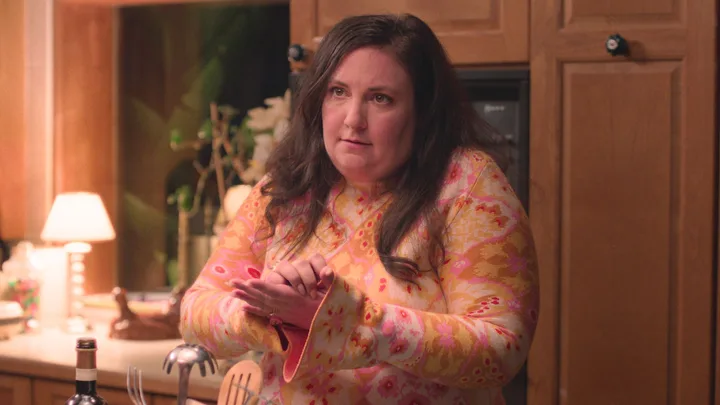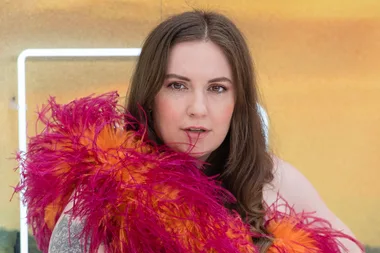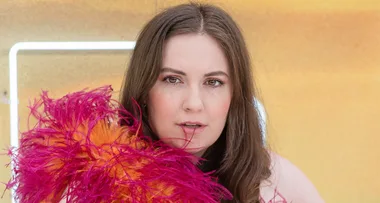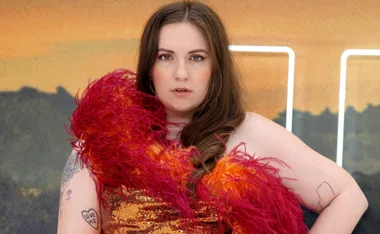Inside the guest bathroom of a London home, Lena Dunham overheard something she shouldn’t have. “She’s just a little too much,” whispered a voice from beyond the tiled walls. There was no doubt in Dunham’s mind that the private exchange was about her.
“I remember my whole being shrinking into nothing,” recalls the award-winning director, actor and writer. Hearing that someone thought she was “too much” immediately made her think she was difficult, over-the-top, exhausting and intolerable; another of those terms – like “emotional” – that only women seem to be branded with. In an industry still heavily dominated by men, this was not the first time that someone had made her feel small.
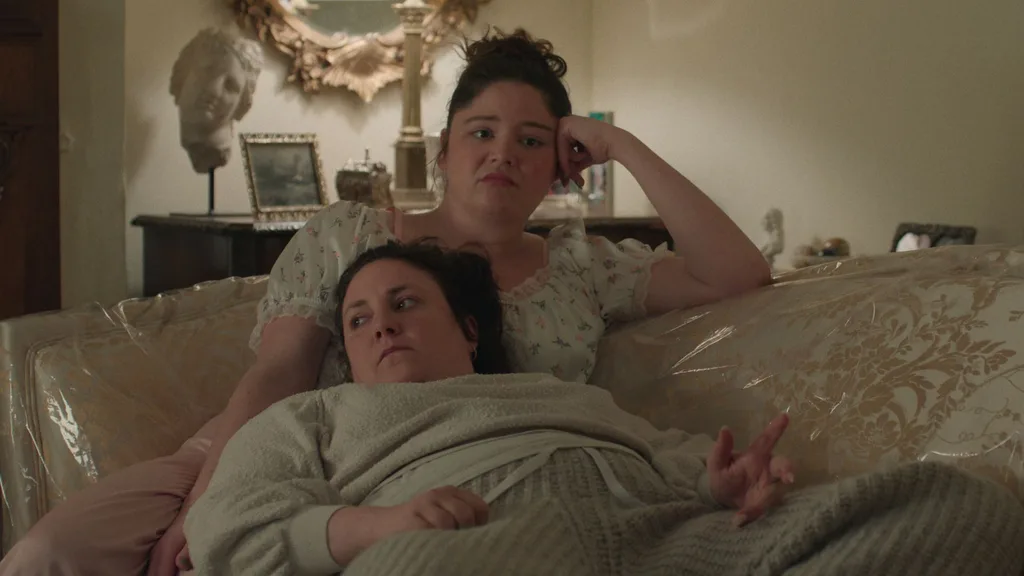
Enter, Dunham’s husband, the British musician Luis Felber, who explained that unlike in her native America, “too much” is a term of endearment in the UK. “[He told me] the term was a descriptor of love and joy and that something was ‘too much’ because it was delightful and it overflowed,” says Dunham.
“It was such a recalibration for me to think about the term in a different way.” Thrilled with this new definition, she was determined to spread the word that being “too much” is something to be proud of, rather than ashamed.
And so, when searching for a title for the semi-autobiographical romcom she wrote with Felber, there was only one phrase that captured the sentiment of the show: too much. The series follows Jessica (played by Hacks’ Megan Stalter) as she moves from New York to London.
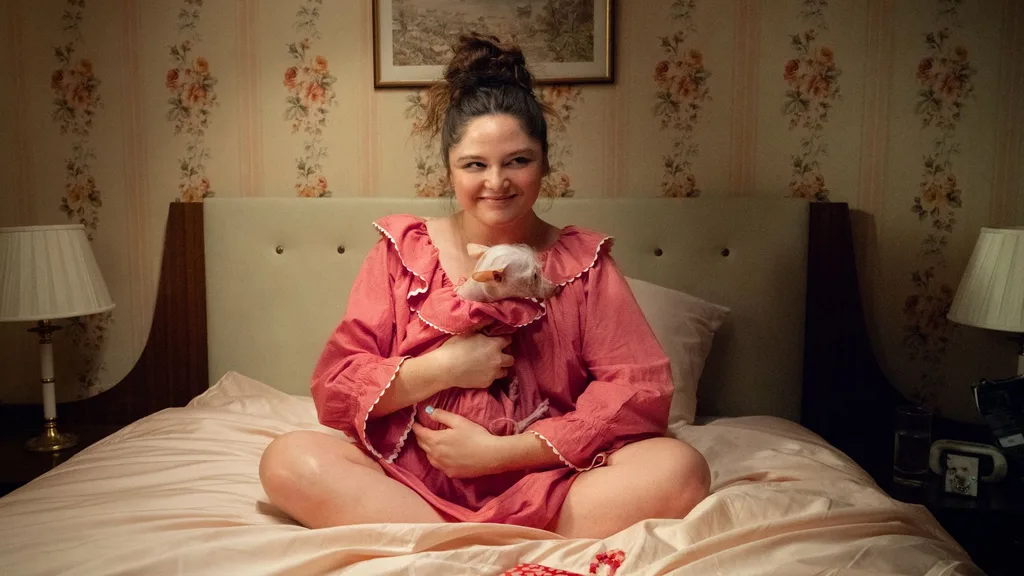
Once there, she meets the commitment-phobic punk musician Felix (Will Sharpe). The result is a hilarious yet rare portrait of dating and finding love in your thirties. (Dunham and Felber are both 39, and married in 2021.)
“When I entered my thirties and I was still single, I looked around pretty bewildered, as I saw that most of my friends were in relationships, starting families, [which can feel] as alienating as moving to a different place and not knowing the language.
Then, as you start to meet other people in their thirties who are also single, you realise that they’ve had entire lives. There will never be someone who enters your life in your thirties who has a spotless record.
We wanted to explore the complexities of that.” Too Much feels like a natural progression for Dunham, as her loyal Girls followers move through their thirties. Premiering in 2012, Girls was the antidote to the glossy, glamorous female archetypes we were used to seeing on television.
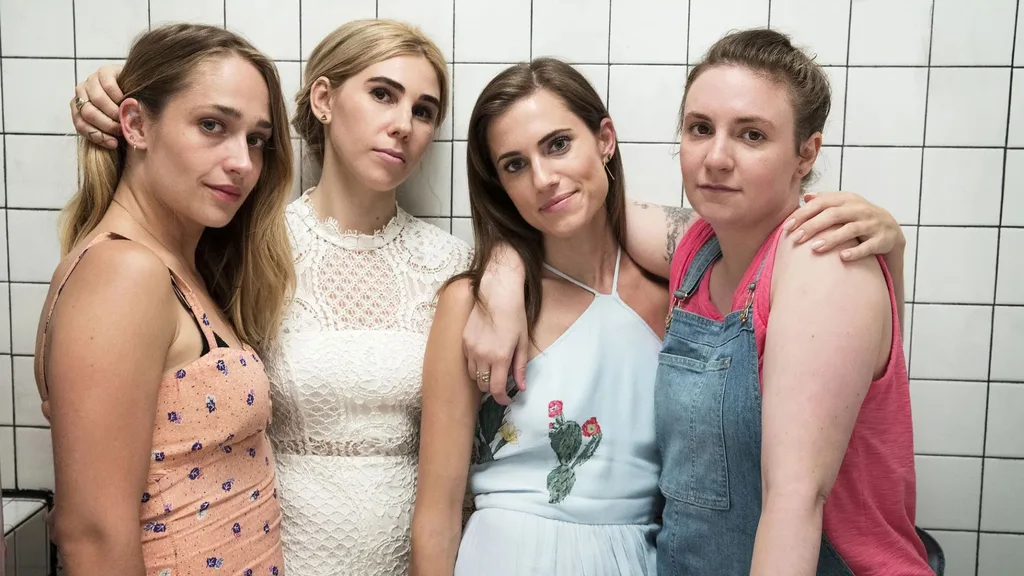
A bible for women in their twenties, the four central characters – Hannah, Marnie, Jessa and Shoshana, played by Dunham, Allison Williams, Jemima Kirke and Zosia Mamet respectively – are flawed, problematic and at times insufferable, but also mirror a deep vulnerability in every female who has ventured through that defining decade. So much so that there has even been a recent revival of the series by Gen Z, who have brought Girls out of the Tumblr era and onto TikTok.
In Too Much, Dunham makes the case that despite what her characters in Girls might believe, life doesn’t end at 30. “I hope that people in their thirties don’t look around and feel that their lives are inadequate, because there are many different ways to be an adult,” she says.
“As much as we have changed, [society] still values the traditional nuclear family system. [But] we don’t have to feel a pressure to hit certain milestones just because it’s the message that this normative society is sending us.”

Too Much might only be loosely based on Dunham’s life, but the parallels between her and Jessica are easy to draw: Jessica is a commercial producer, Dunham creates TV shows; Jessica is a New York expat in London, Dunham made the same city swap in 2021.
They both have a thing for musicians. For this reason – in the murky waters of life imitating art – Dunham decided not to take the lead role.
During the five years she played Girls’ polarising Hannah Horvath, a lead character also based loosely on Dunham’s life, she was the subject of relentless online criticism and trolling, particularly about her body. Instead, Dunham plays Nora, Jessica’s older sister, who has moved home with her 13-year-old son following her recent divorce. A thirty-something whose life hasn’t panned out how she imagined, Nora spends most of the series bedridden by depression.
As a child, Dunham also spent much of her time bed-bound by sickness. In 2019, she revealed she had been diagnosed with Ehlers-Danlos syndrome, a genetic disorder that weakens your connective tissue.
After a degree of denial surrounding her disability in her early twenties, Dunham often relies on a walker these days, especially when she’s working long days on set. Due to the trans-Atlantic nature of the new series, much of the humour naturally lends itself to missed cultural nuances, like confusing a council-owned estate flat for a lush estate home.
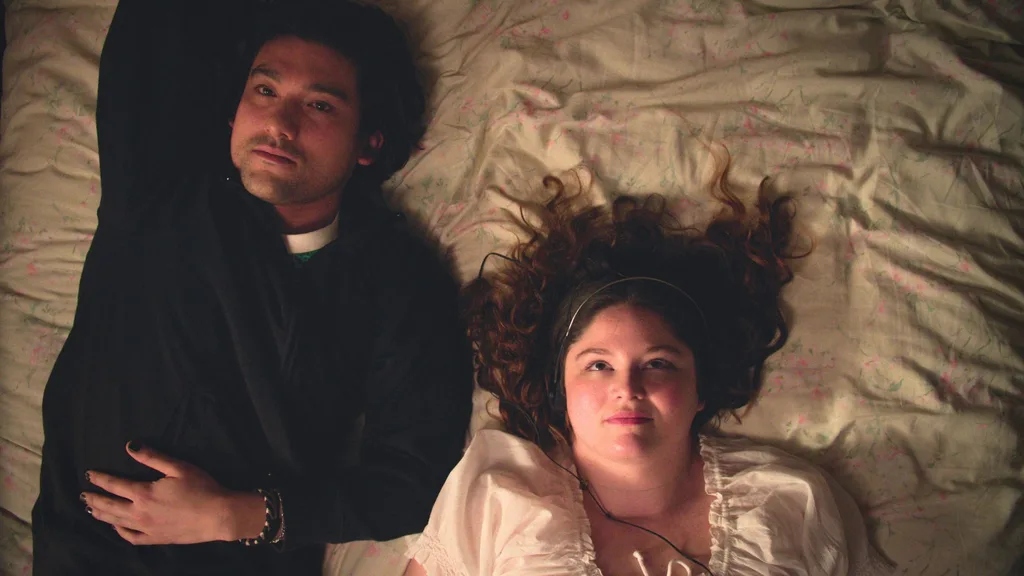
And Dunham’s signature silly, theatrical bits and iconic one-liners – recall Hannah’s famous “I’m a voice of a generation” line – run through every episode.
But unlike the twenty-something who launched a relatively unknown cast into stardom in 2012, the Dunham of today has the pulling power to enlist the likes of Naomi Watts, Rita Ora, Emily Ratajkowski, Jessica Alba, Adwoa Aboah, Andrew Scott, Stephen Fry and Richard E. Grant to star in her new show. The biggest misconception you could make about Lena Dunham is that Girls marked the beginning and end of her career.
Aside from dropping a new series, she is currently writing a second show for Netflix, has plans to relaunch her podcast, The C-Word, is juggling several producing projects under her own production company, Good Thing Going, and is in the process of penning her second memoir. Luckily for Dunham, nothing is ever too much.
Too Much is streaming now on Netflix.
